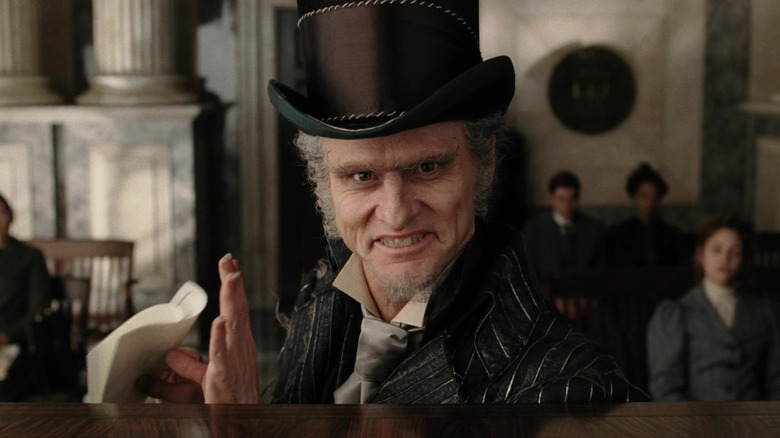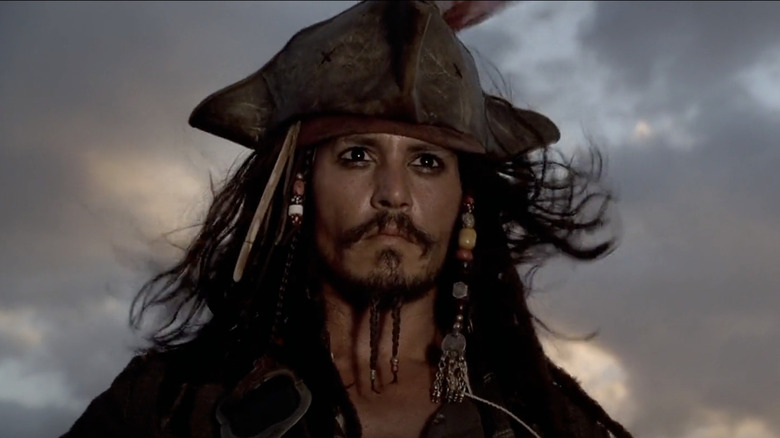Gore Verbinski’s “Pirates of the Caribbean: The Curse of the Black Pearl” was viewed with some ridicule at the time of its release in the summer of 2003. Disney was in the early, toe-dip stages of trying to turn its theme park attractions into moves, and it had missed badly at the box office with Brian De Palma’s “Mission to Mars” (a terrific film very loosely based on the ride of the same name) and “The Country Bears” (a live-action movie based on “The Country Bear Jamboree”). The results were so commercially dismal that Disney honcho Michael Eisner was on the verge of killing the strategy altogether.
Producer Jerry Bruckheimer knew the town was skeptical about turning a theme park ride into a movie, and he understood fully well that Eisner didn’t want to damage the value of these properties by lending their names to ho-hum family films. But Bruckheimer believed in the “Curse of the Black Pearl” script written by Ted Elliott and Terry Rossio (who also earned credit for hatching the story along with Stuart Beattie and Jay Wolpert), and he strongly felt that he’d found a star who could swashbuckle ebulliently as Captain Jack Sparrow in Jim Carrey (via Vulture).
Casting Carrey as a lead in the early 2000s was basically a blockbuster guarantee (though there were exceptions, like Frank Darabont’s “The Majestic”); he wouldn’t come cheap, but the comedy superstar clowning it up as an over-confident pirate sounded like box office gold. Obviously, Verbinski and Bruckheimer went in a different direction, but Carrey made out just fine anyway in 2003.
Jim Carrey opted to play God instead of joining the Pirates of the Caribbean
Carrey is a gifted physical performer, but he probably would’ve done a broad variation on a classic swashbuckler like Errol Flynn. He’s never had the athleticism of Burt Lancaster or Kirk Douglas, so it’s safe to say that his Jack Sparrow would’ve given Verbinski’s film a very different tone — more “Looney Tunes” than “Captain Blood.”
It’s worth noting that Verbinski and Bruckheimer also considered Michael Keaton and Christopher Walken; with his dancing background and off-kilter delivery, a Walken Sparrow would’ve been nothing if not singular. But the filmmaking team wanted a Sparrow with an “edge,” which they felt Depp could provide. Even then, they were shocked when the star showed up at the first table read doing a boozy Keith Richards impersonation. Depp’s research suggested that pirates were the rock stars of their day, so he emulated the one most closely associated with hedonistic behavior.
While Verbinski and company were off shooting a rousing, franchise-launching blockbuster, Carrey was pulling down $25 million to play a hapless TV news reporter whose career gets a divine boost when God imbues the schmuck with his powers. “Bruce Almighty” was a smash hit for Carrey, grossing $485 million at the box office and spawning a lousy sequel, “Evan Almighty,” that he wisely avoided. I mean, “Bruce Almighty” is garbage, too, but Carrey was connecting so palpably with moviegoers back then that it didn’t matter.
In any event, everyone wound up making the movie, especially Carrey. Starring in one of the biggest films of 2003 then allowed him to turn around and make one of the best films of the 21st century (or ever) in 2004’s “Eternal Sunshine of the Spotless Mind.” I’ll take that trade-off any day.










